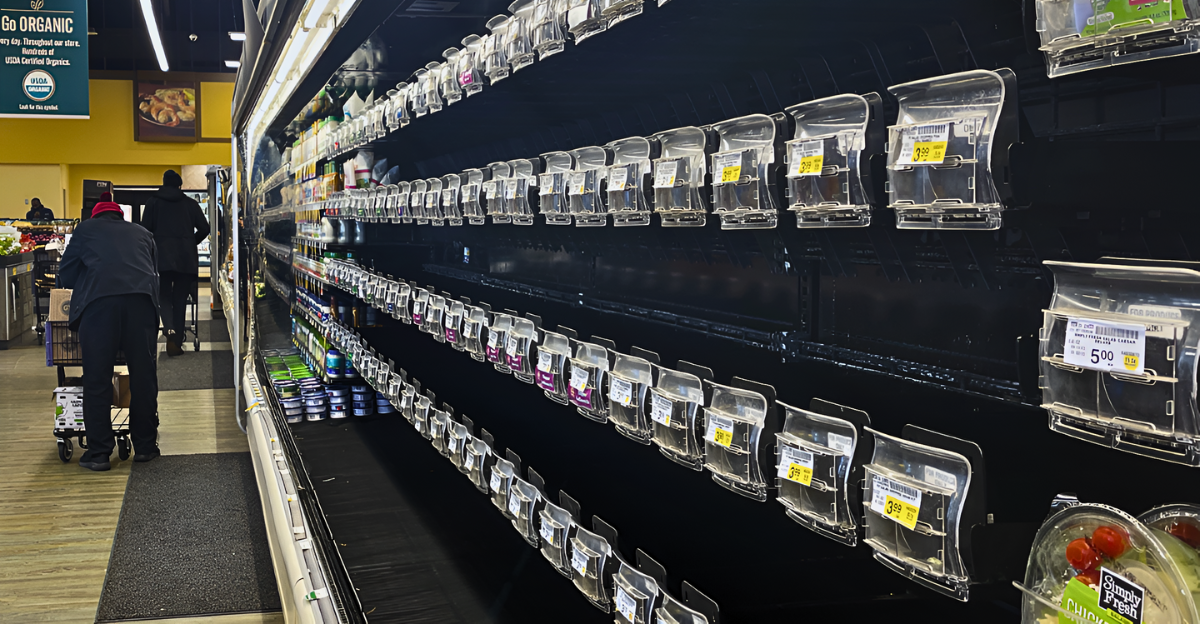
Del Monte Foods, a brand tied to American kitchens since 1886, has filed for Chapter 11 bankruptcy. Known for its iconic green-labeled cans, the company once symbolized trust and convenience. Now, it’s in a financial crisis. But this isn’t the end. Chapter 11 offers a path to reorganization. The brand may survive, but likely not in the way shoppers remember. So, what happened to one of America’s most recognized grocery names? Let’s trace the story.
Cracks Were Forming Long Before the Fall
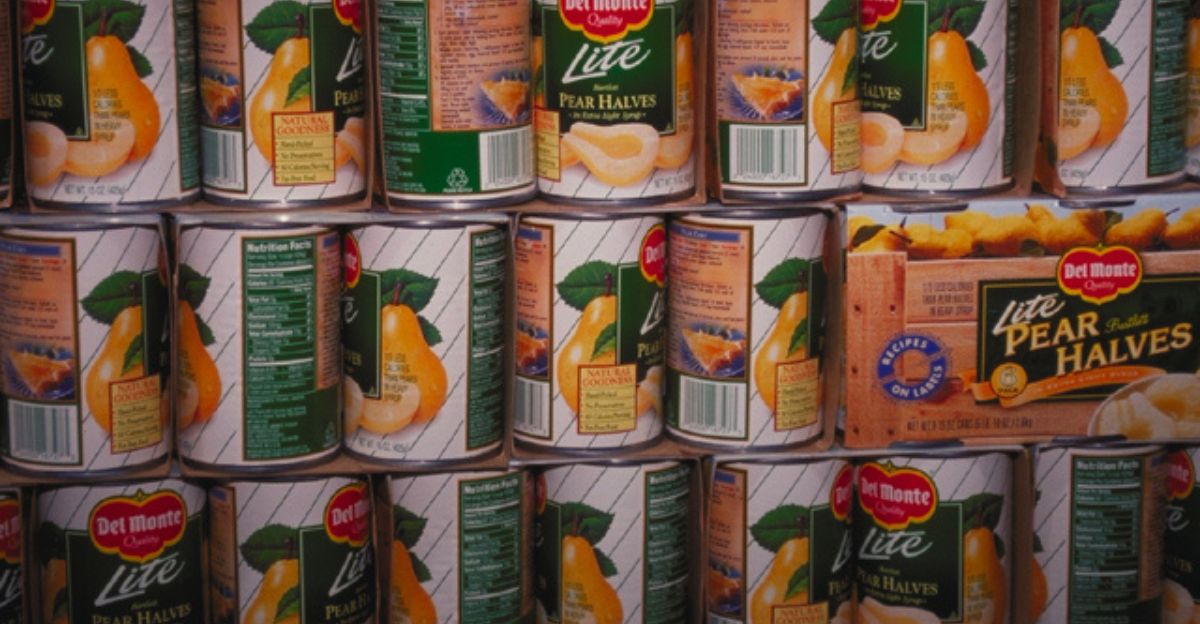
Del Monte’s downfall didn’t happen overnight. For years, signs of trouble were quietly building. Shoppers moved away from canned goods and filled carts with fresh produce instead. The company didn’t adapt fast enough. Once a leader in convenience, it struggled to keep up with changing tastes. Products started sitting on shelves longer, and store-brand alternatives chipped away at sales. The market was shifting under Del Monte’s feet, and the company couldn’t regain its balance.
Health-Conscious Shoppers Changed Everything
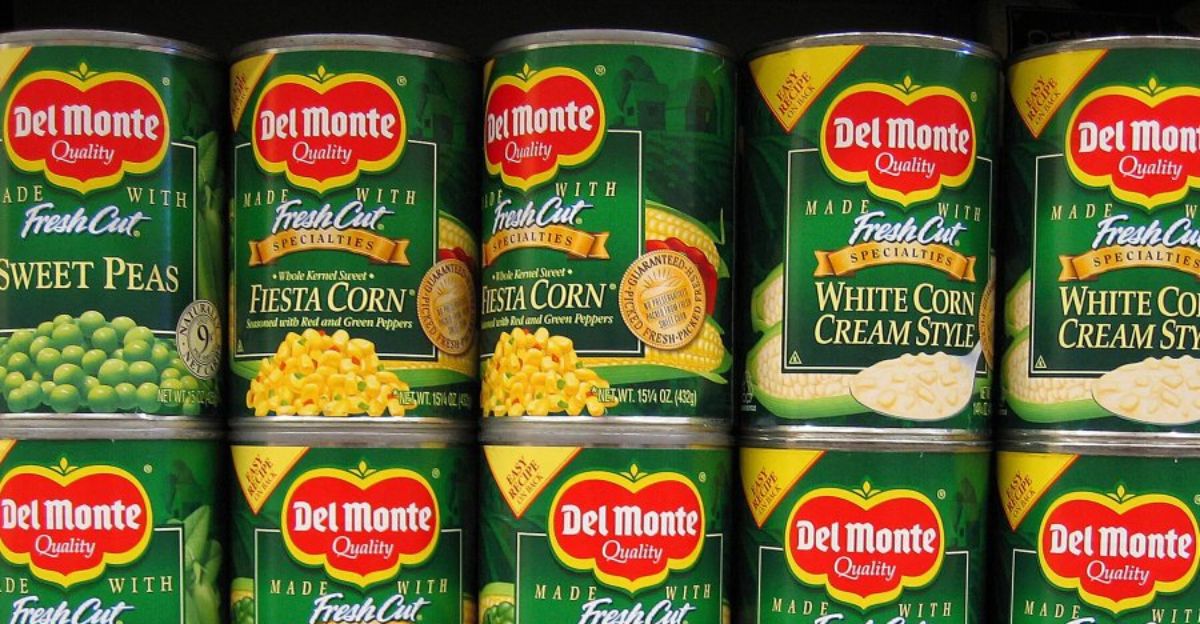
According to The Packer’s Fresh Trends 2023 survey, 77% of U.S. consumers buy fresh fruit, and 72% buy fresh vegetables. By contrast, only 31% buy canned fruit and 38% buy canned vegetables. As awareness of preservatives and sodium grew, demand for shelf-stable food dropped. Sarah Foss from Debtwire summed it up best: shoppers now want “healthier alternatives.” For Del Monte, which built its empire on canned convenience, this shift was a major blow.
An American Icon in Bankruptcy Court

On July 1, Del Monte Foods filed for Chapter 11 in New Jersey bankruptcy court. Founded in 1886, the company has fed generations, from Great Depression meals to modern-day lunches. Chapter 11 doesn’t mean the business is over, but it does mean everything’s on the line. Del Monte is seeking to restructure and sell key assets. The court filing shows just how far the company has fallen, and how urgent the need for change really is.
What Chapter 11 Really Means

Chapter 11 allows companies to reorganize and keep operating while managing debt. It’s not a shutdown, it’s a reset. Big brands like General Motors and Marvel have used it and come back stronger. But it’s not a guarantee. For Del Monte, survival depends on finding a buyer and adapting to a market that’s outgrown canned goods. So while the brand isn’t gone, it may soon look very different from the one people grew up with.
A Legacy Shaped by American History
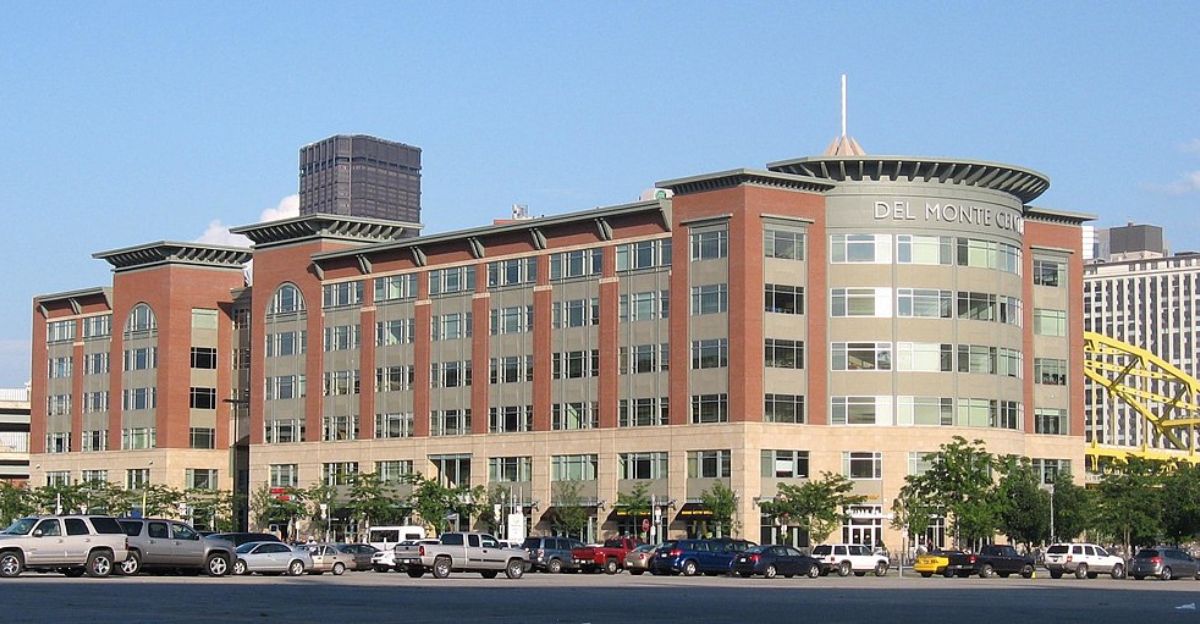
Del Monte’s journey began as a coffee label during California’s agricultural boom. By 1909, its logo appeared on canned goods across the country. For decades, it represented security and convenience, especially when fresh produce was seasonal or too expensive. Del Monte helped define American grocery shopping. But as consumer habits evolved, that legacy became harder to maintain. What once made Del Monte iconic has now become its biggest challenge in today’s fast-moving food world.
Who Really Owns Del Monte Today?

Del Monte may feel like a classic American brand, but it hasn’t been U.S.-owned in years. Since 2006, a controlling stake in Del Monte Pacific has been held by NutriAsia, a private food group tied to the Campos family in the Philippines. In 2014, they acquired Del Monte’s U.S. food division for $1.675 billion. That means canned peaches, Contadina tomatoes, and Joyba tea now fall under foreign ownership. The name stayed American, but ownership didn’t. And that matters in today’s global food economy.
The Debt That Crushed Growth
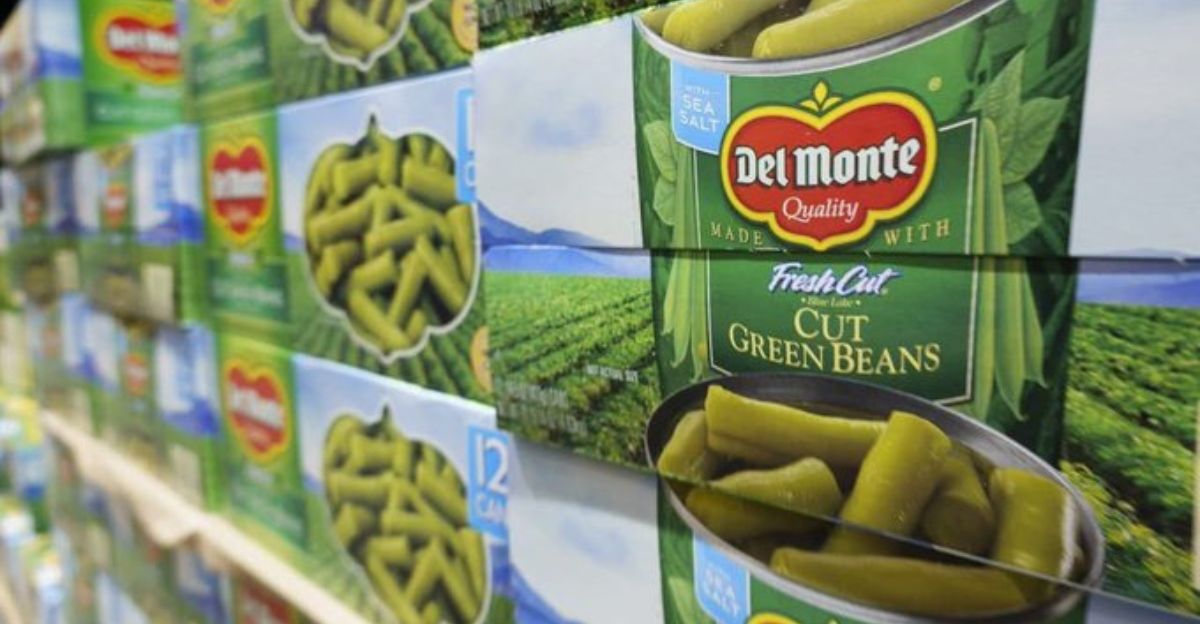
The 2014 buyout by Del Monte Pacific came with major baggage: debt. The company’s interest costs jumped from $66 million in 2020 to $125 million this year. Chief Restructuring Officer Jonathan Goulding said those payments now outpace earnings. Instead of funding new ideas or expanding its product line, Del Monte spent years just servicing debt. That pressure slowly strangled the company’s ability to evolve or compete, making it vulnerable when sales began to slip.
Emergency Loan Buys Limited Time
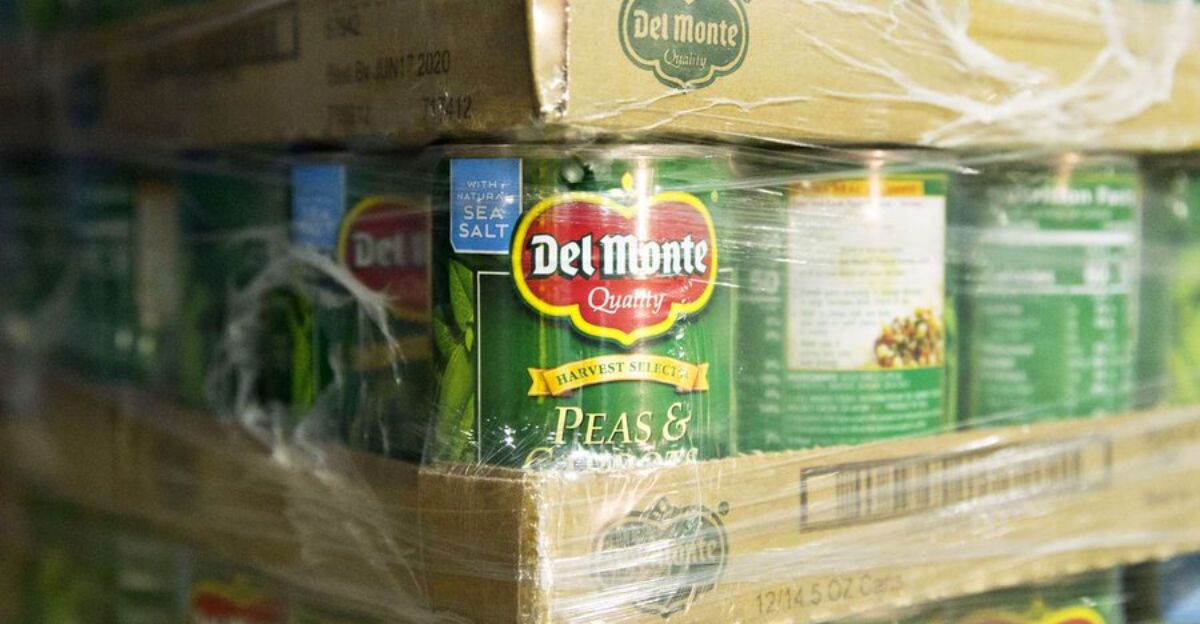
To stay afloat, Del Monte secured $912.5 million in debtor-in-possession financing, including $165 million in new funds to support daily operations during the sale process. But experts say it’s not enough for a true comeback. With $1.245 billion in secured debt and total liabilities up to $10 billion, the loan may only delay tough decisions. Del Monte isn’t out of the game, but the clock is ticking fast to find a long-term solution.
A Sale—Not a Rescue Mission
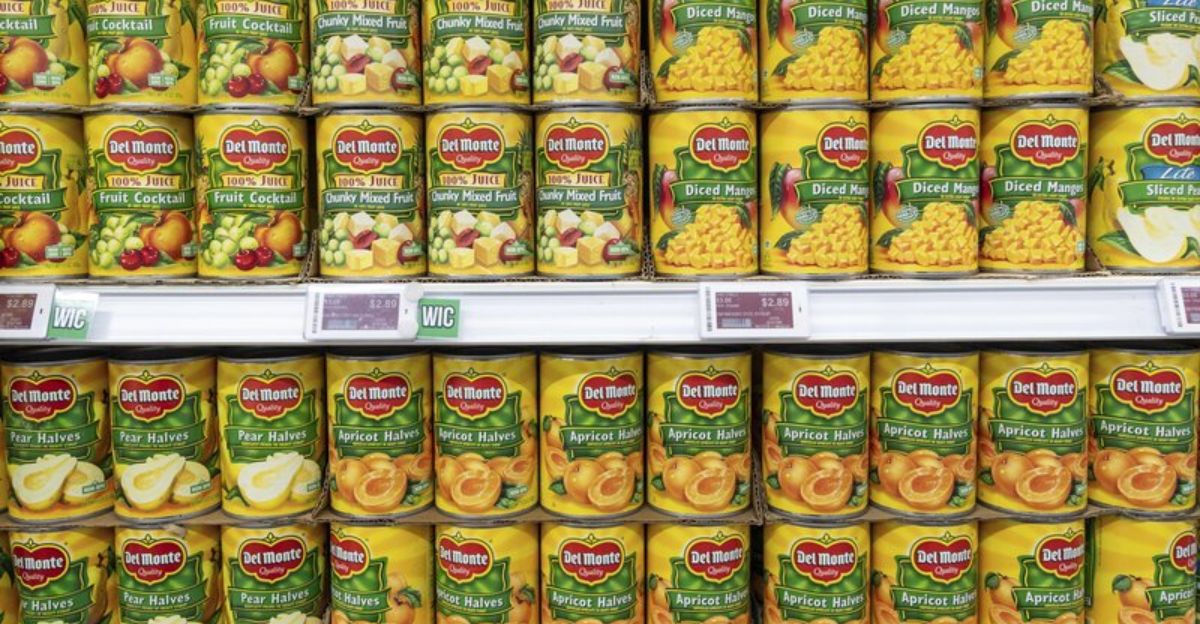
Del Monte says the Chapter 11 filing is part of a “turnaround plan,” but the court documents tell another story. The company has entered a restructuring agreement that puts nearly everything up for sale. This is less about rebuilding and more about salvaging what’s left. Buyers may be interested in the brand name or distribution network, but there’s no guarantee they’ll keep operations intact. This may be the end of Del Monte as we knew it.
When Partners Become Legal Adversaries
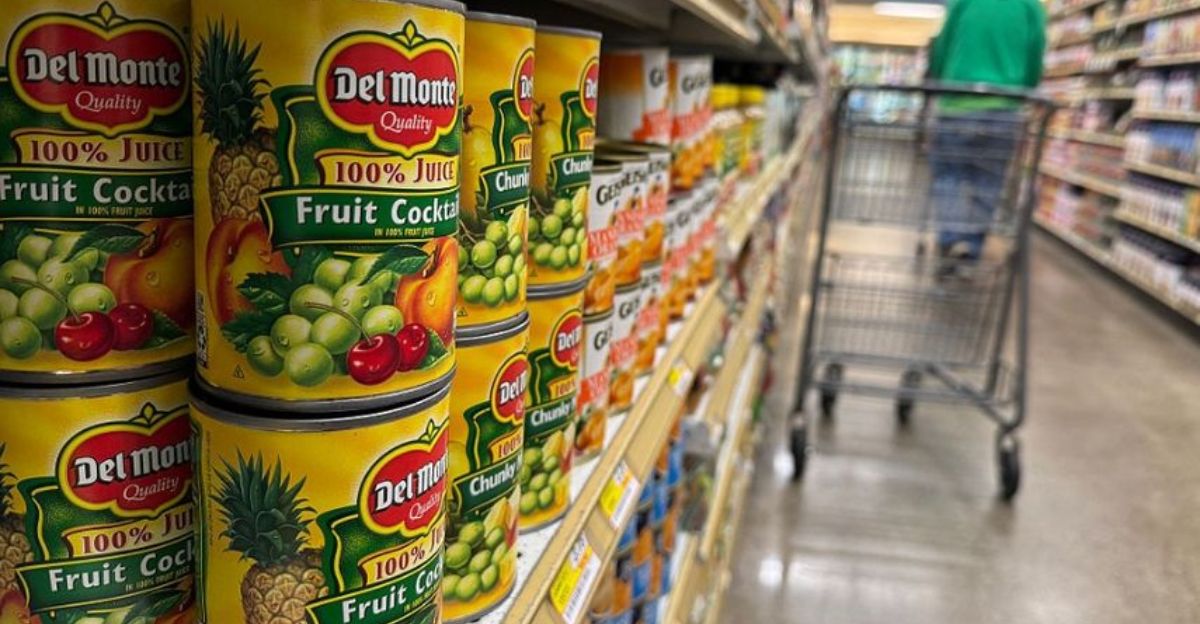
Del Monte’s relationship with its lenders got messy. In May this year, a debt restructuring deal backfired and led to a lawsuit. The result? An extra $4 million in annual interest payments. Its parent company even stopped paying some lenders. When those funding your survival start suing you, the chances of recovery shrink fast. Legal battles like this scare off potential investors and further complicate restructuring efforts. It’s a red flag for anyone eyeing a purchase.
Canned Food’s Image Problem
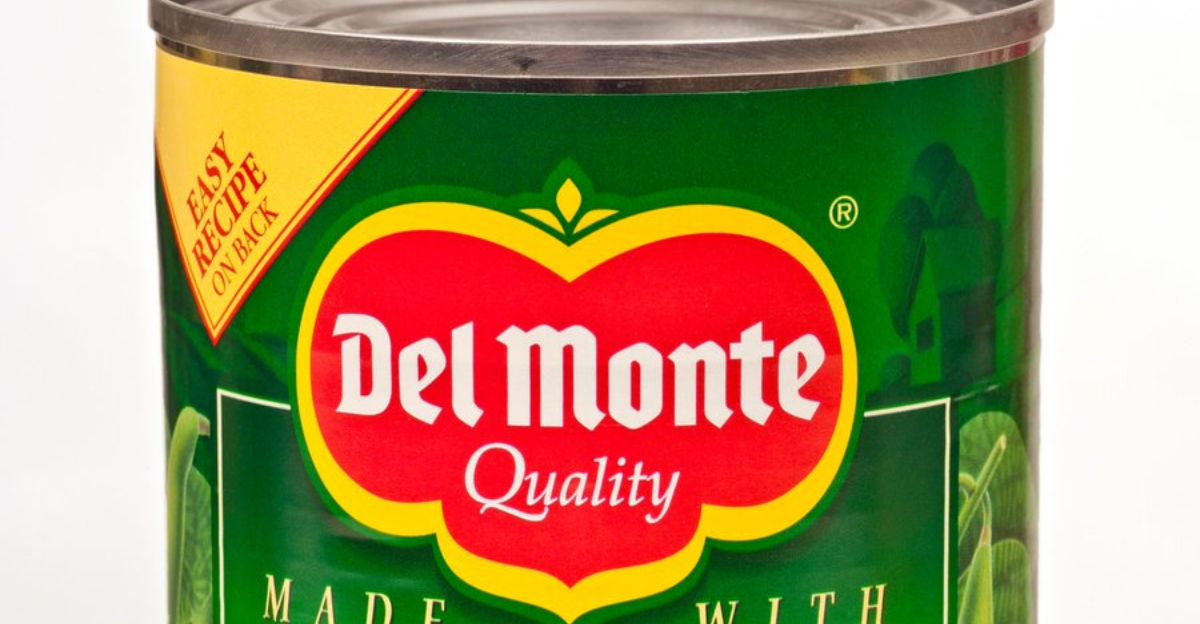
Canned goods were once seen as miracles of modern life: long shelf lives, easy storage, and quick meals. Today, they’re viewed as overly processed and nutritionally weak. Health-minded shoppers now seek organic, local, or fresh items. Even during the pandemic, when people stocked up on shelf-stable goods, the boost didn’t last. Once shopping habits returned to normal, Del Monte was stuck with extra stock and fewer buyers. The product that built the company now drags it down.
The Struggle to Modernize Came Too Late

Del Monte did try to modernize. Newer brands like Joyba bubble tea and Take Root Organics were launched to capture younger consumers. Joyba saw some success in 2024, but not enough to balance declining sales in canned goods. The push toward trendy and healthier items came too late. Buyers still saw Del Monte as their grandparents’ pantry brand. That kind of reputation is hard to shake, and even harder to market your way out of.
Fresh Del Monte? Not the Same Company
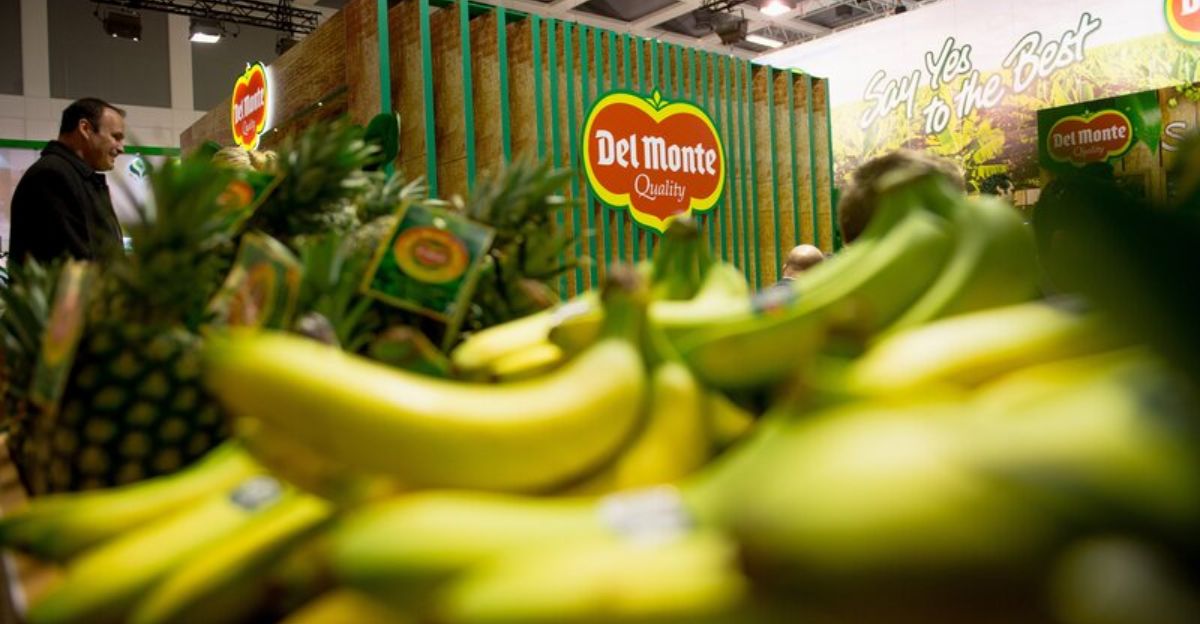
Many shoppers are confused by the name. Fresh Del Monte, which sells bananas and pineapples, is a separate company and not part of this bankruptcy. The two split back in 1989 but still share branding through a licensing deal. While canned goods may disappear from shelves, Fresh Del Monte’s operations continue as usual. It’s an important distinction: fresh produce will still carry the name, but the company behind your canned peaches is in serious trouble.
What’s Left That’s Worth Buying?
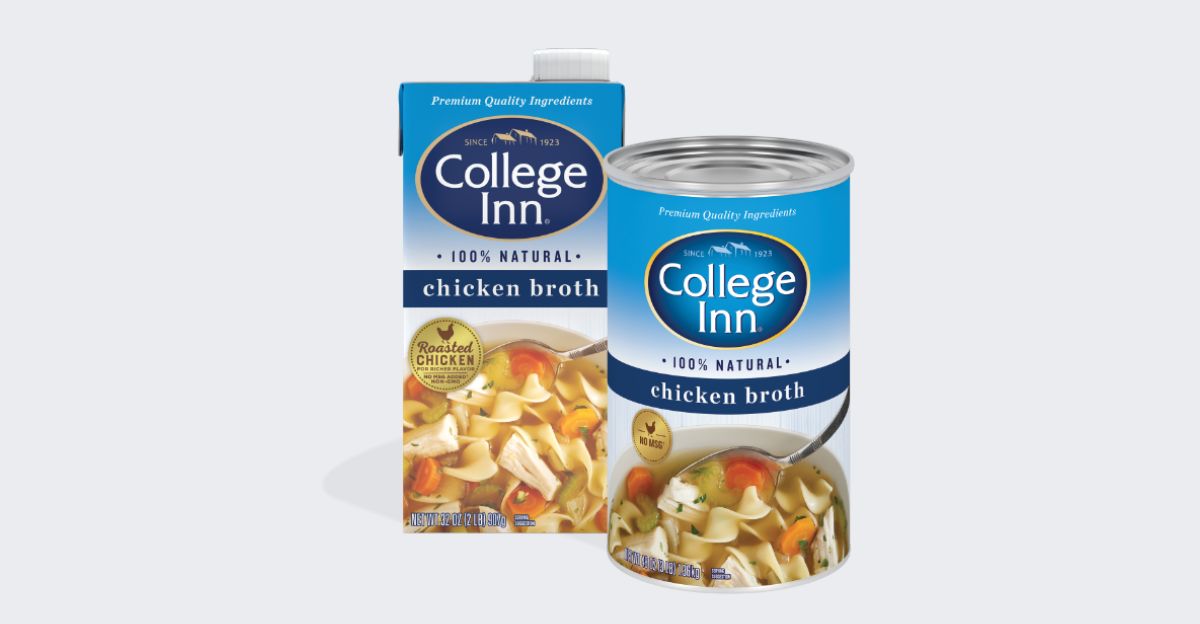
Del Monte owns more than just canned fruit. Its portfolio includes College Inn and Kitchen Basics broths, Contadina tomato products, and Joyba bubble tea. Some of these saw modest growth, but not enough to offset losses elsewhere. Any buyer is likely to cherry-pick high-performing brands and ditch the rest. The reality is, while some parts of Del Monte still hold value, the company waited too long to shift its focus, and now it’s paying the price.
A Bigger Trend Sweeping the Industry
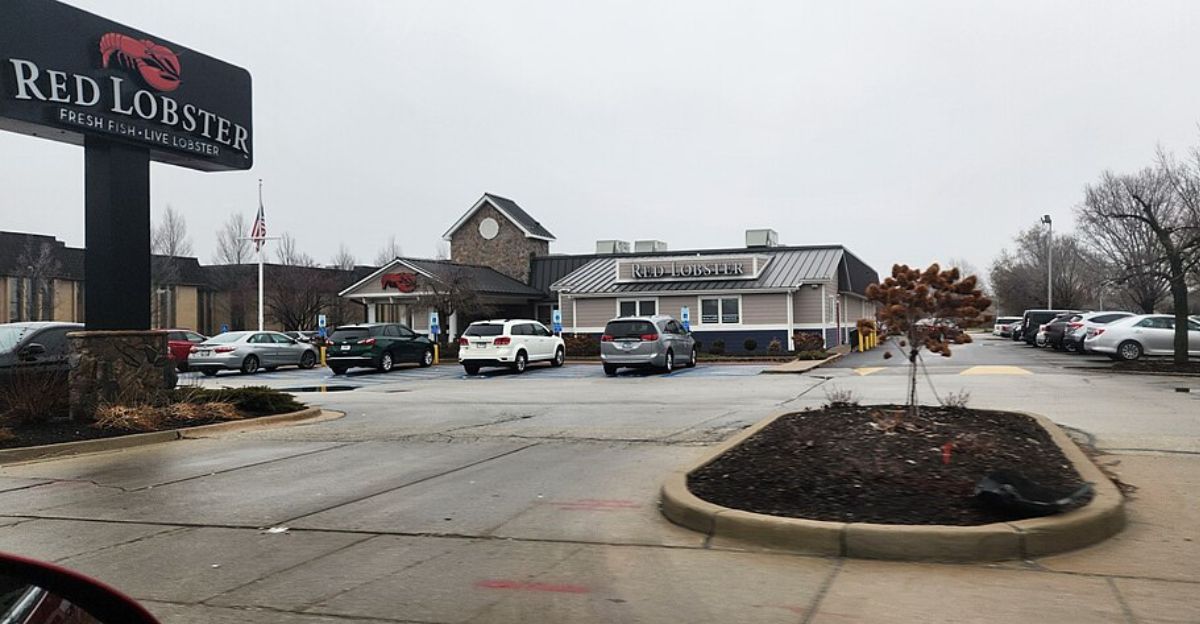
Four major food and beverage firms have filed for bankruptcy this year, including Harvest Sherwood and Hearthside Food Solutions. These collapses reflect broader industry pressures, rising costs, supply chain issues, and the growing popularity of store brands. Even restaurant chains like Red Lobster and TGI Fridays are struggling. Legacy names are falling, not because people stopped eating, but because people stopped eating what these companies were selling.
Consumer Habits Have Permanently Shifted

Private label products now make up 25% of grocery sales. Why? They’re cheaper and often seen as just as good. Meanwhile, more shoppers are focusing on fresh, organic, or locally sourced food. Sarah Foss of Debtwire believes these changes are long-term. Brands that don’t adapt quickly are being left behind. For companies like Del Monte, that’s the hardest truth to face.
Can the Brand Be Saved?

Del Monte’s survival depends on whether someone sees long-term potential in its name and infrastructure. A private equity firm might buy parts of it and sell them off later. A food conglomerate might keep a few brands alive. But this isn’t a company poised for a dramatic comeback. The most likely outcome? Del Monte’s name lives on in select products, but the company that helped build America’s pantry may not make it through intact.
Why This Matters for Every Legacy Brand

Del Monte’s fall is more than a business story; it’s a warning for every legacy brand in America. Debt, outdated products, and shifting consumer values are exposing weaknesses in once-dominant companies. Relying on past success isn’t enough. As shoppers demand freshness, sustainability, and value, old strategies no longer work. Del Monte didn’t adapt fast enough, and now it’s paying the price. The brands that survive this new era will be the ones that listen and change.
Lessons From the Collapse

What can other companies learn? First, consumer loyalty is fragile. Second, debt can sink even the most recognized names. Third, change has to come early—not when sales are already crashing. Del Monte’s leaders may say bankruptcy offers a fresh start, but it’s also a sign they waited too long to act. The message for others in the industry is clear: evolve quickly, or risk becoming irrelevant in a market that moves fast.
The End of an Era—or the Start of a New One?
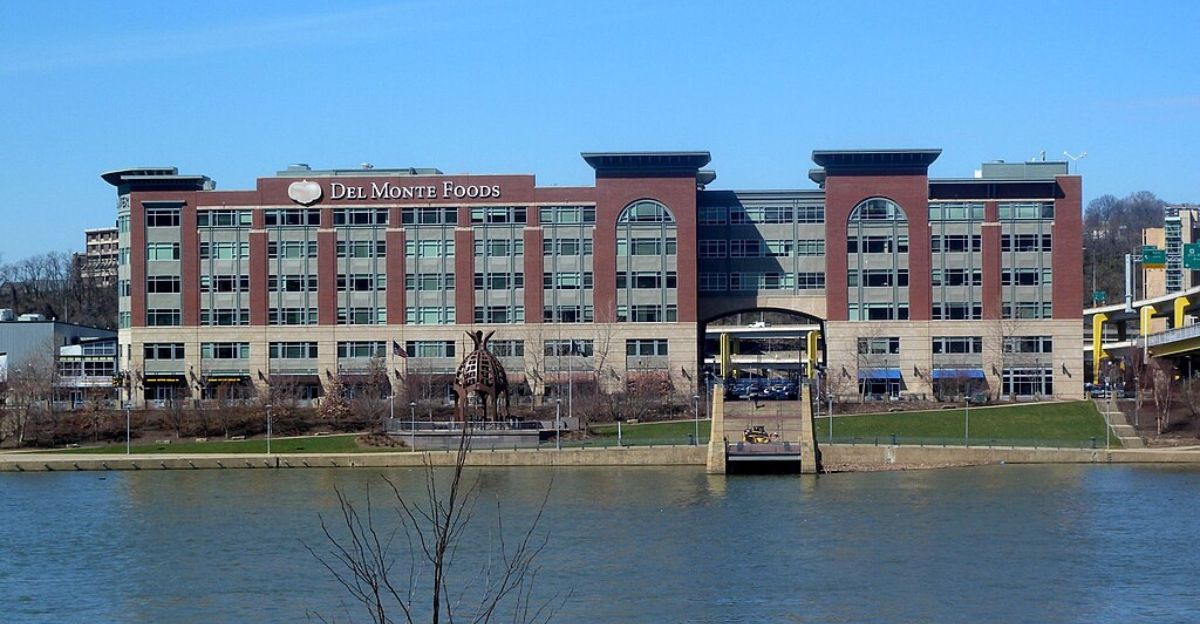
Del Monte’s Chapter 11 filing marks the end of the brand as we knew it. Whether parts of it survive or disappear depends on what happens next. But the message to consumers is powerful: even trusted names must prove their worth all over again. This isn’t just about canned food, it’s about the future of what we eat, what we value, and how quickly the food industry must evolve to meet a changing world.